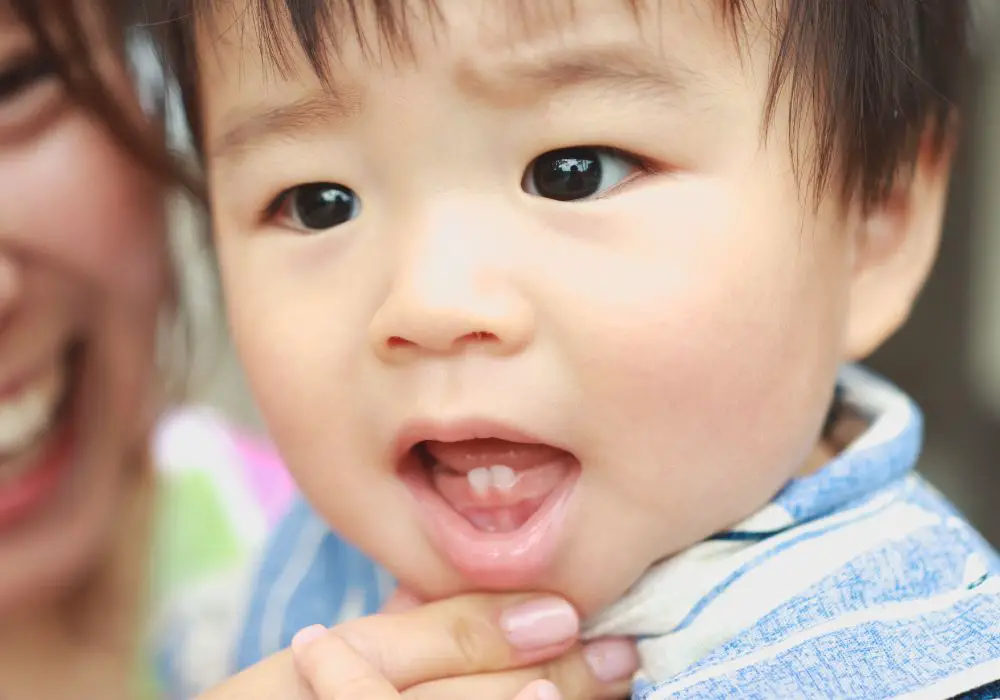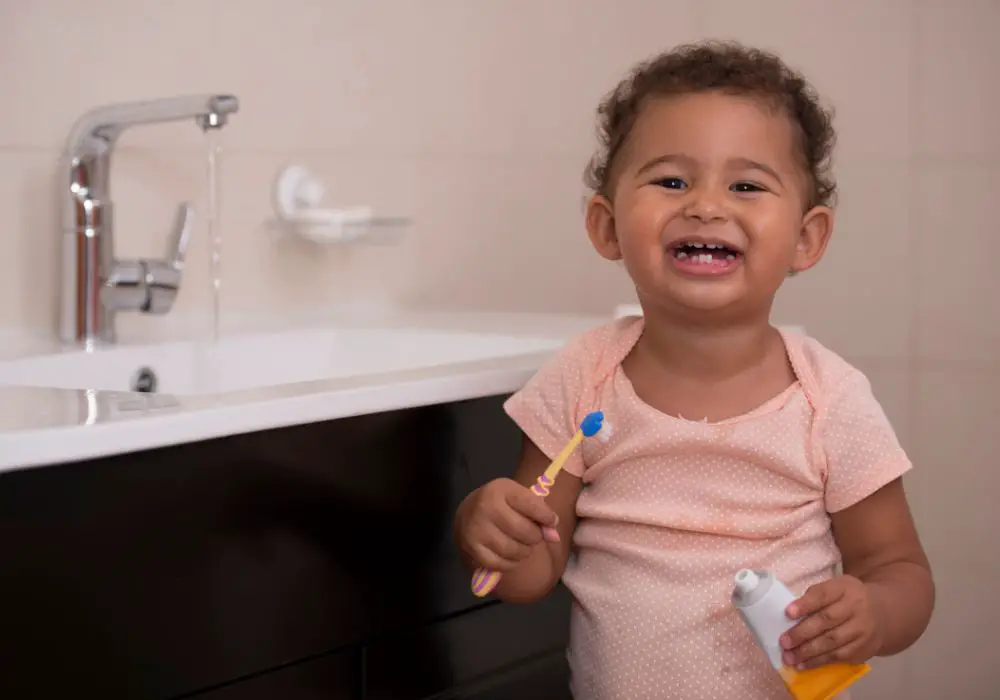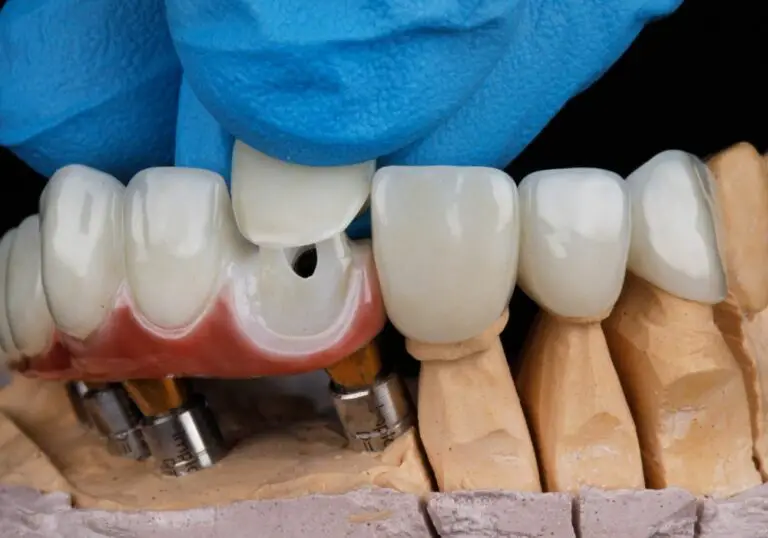Having a baby is an exciting milestone for any parent. As you nurture your little one and watch them grow, you want to ensure their health and development is on track. An important part of this is monitoring your baby’s oral health. Many parents wonder what they can do to help their child develop straight, properly aligned teeth. While genetics play a role, there are proactive steps you can take starting in infancy to set your baby up for success.
Why are straight teeth so important for babies?

You may think it’s too early to worry about how straight your baby’s teeth come in. However, straight, well-aligned teeth are crucial for more than just a nice smile. Here’s a detailed look at why straight teeth matter for your child’s health and development:
- Chewing and eating: Straight teeth allow babies to chew and bite food correctly using their back teeth. Crooked or crowded teeth can cause a poor bite alignment. This impairs their ability to adequately chew and swallow food. Improper chewing and eating due to crooked teeth can negatively impact nutrition and growth in babies.
- Speech development: Babies learn to speak and pronounce words using their lips, tongue, teeth, and oral cavity. Crooked teeth alter the positioning of the teeth and shape of the mouth. This can impair babies’ ability to make certain letter sounds and develop clear speech. Early speech issues due to crooked teeth can cause language delays.
- Oral hygiene: Straight teeth have fewer irregular spaces for plaque, bacteria, and food debris to get trapped. They are much easier for babies to adequately brush and floss as their motor skills develop. Crooked teeth have difficult-to-reach spots that can increase tooth decay and gum disease.
- Jaw alignment: Teeth guide the growth and development of the jaw as a baby matures. Crooked misaligned teeth alter the jaw’s positioning, causing chewing and biting problems. This also affects facial symmetry and development.
- Self-esteem: As your baby grows into a toddler and child, you want them to have healthy self-confidence. Severely crooked teeth often lead to poor self-image and self-consciousness that can follow a child into adulthood.
- Impact on permanent teeth: Allowing severely crooked baby teeth can increase chances of orthodontic problems when adult teeth come in. It’s best to correct alignment early.
For all these reasons, properly aligned teeth are crucial. The American Dental Association and the American Association of Orthodontists recommend all children have their first comprehensive orthodontic evaluation between ages 1 and 7 to get early treatment for any emerging alignment problems.
What are signs of crooked teeth in babies?
It is normal for some crookedness when babies’ teeth first erupt through swollen gums. But some misalignment may signal problems. Monitor your baby’s teeth as they come in and look for these potential early warning signs of orthodontic issues:
- Order of eruption: Teeth emerging significantly before or after the expected order could indicate crowding or other problems.
- Severe crowding: Upper and lower teeth coming in extremely crooked, crossed, or turned sideways.
- Major overbite/underbite: Lower front teeth extend out much farther than upper front teeth when biting. The reverse may occur with overbite.
- Crossbite: Upper and lower teeth are severely misaligned with each other when biting.
- Impacted teeth: Permanent teeth are blocked from growing in properly due to crowding by other teeth.
- Protrusion: Front teeth are abnormally pushed back or forward of proper position.
- Jaw issues: Clicking, popping, or grinding of the jaw joint.
- Damage: Chipped or broken teeth due to facial injuries or grinding.
Thumbsucking or pacifier use past age 2 can also cause front teeth to buckle or misalign. If you notice any of these crooked teeth signs, have your pediatric dentist evaluate your baby. Early orthodontic intervention is often easiest and prevents extensive treatment later.
How can I make my baby’s teeth straight?

While genetics play a role in your baby’s teeth alignment, there are proactive steps you can take to care for their teeth and support straight teeth development:
Start good oral hygiene immediately
- Clean gums: Before teeth erupt, gently wipe your baby’s gums daily with a wet, soft cloth. Once teeth appear, switch to a baby toothbrush.
- Brush diligently: Once your baby has several teeth, brush them twice a day (morning and night) with a rice-sized smear of fluoride toothpaste. Flossing can begin once contacts form between teeth.
- See a dentist early: Take your baby for their first dental visit by 12 months old, then every 6 months for professional cleanings and monitoring.
Provide proper nutrition
- Breastfeed when possible: The Academy of General Dentistry states breastfeeding provides ideal nutrition and promotes jaw/teeth alignment. Aim to breastfeed exclusively for at least 6 months.
- Ensure adequate vitamin D: Vitamin D is required for the body to absorb calcium and strengthen teeth. If breastfeeding, monitor vitamin D levels. Discuss supplement drops with your pediatrician.
- Offer vitamin-rich foods: Once your baby starts solids, provide foods high in vitamins A, C, calcium, phosphorus to build strong teeth – yogurt, cheese, fruits, vegetables, fish.
Seek early professional care
- Cleanings: Regular professional cleanings every 6 months help prevent tooth decay that can cause misalignment.
- Monitoring: Have your pediatric dentist inspect for potential orthodontic issues at each visit and take X-rays around age 2 to catch problems early.
- Intervention: If crooked teeth, bite issues, or other orthodontic problems emerge, seek evaluation and early treatment from an orthodontic specialist. Early correction is most effective.
- Injuries: Seek dental care ASAP for any teeth injured by falls or chipping. Displaced teeth impact alignment.
- Extractions: Your dentist may recommend extracting some excessively crowded baby teeth to allow proper permanent teeth positioning.
Avoid potential problems
- Limit pacifier use: Pacifiers are fine briefly for infants, but extended use beyond 6 months can cause jaw issues or teeth misalignment.
- Discourage sucking habits: Thumb or finger sucking shouldn’t continue past age 2. Use reminders and distractions to stop the habit before permanent teeth start coming in.
- Monitor sippy cup use: Prolonged sippy cup use beyond age 1 can lead to improper swallowing that moves teeth out of alignment. Transition to a regular cup.
- No bottles or milk in bed: Never allow baby to nap or sleep with a milk or juice-filled bottle that can pool around teeth and cause decay.
- Use mouthguards if needed: If your baby grinds their teeth excessively or during teething, use an orthodontic mouthguard to avoid damage.
- Review family history: If you or your spouse had orthodontic work, your child is at higher risk. Monitor closely for early signs of crooked teeth.
With diligent care and monitoring, you can help minimize alignment problems and ensure your baby develops straight, healthy teeth. Don’t hesitate to seek specialized orthodontic care at the first signs of issues. The earlier baby teeth alignment problems can be corrected, the better the outcome.
Common Questions about Straight Teeth in Babies

Caring for your baby’s teeth likely raises many questions about how to ensure proper alignment. Here are detailed answers to some frequently asked questions:
Do teething babies need braces?
Braces or other orthodontic treatments are rarely needed for teething infants. It is normal for emerging teeth to come in somewhat crooked until the jaw fully develops. But at their 1-year visit, your pediatric dentist will check for any potential issues. If they detect problems like overcrowding or misaligned bite, they may recommend seeing an orthodontic specialist for evaluation and early intervention options.
Can thumb sucking alone cause buck teeth?
Thumb sucking does not directly make teeth buckle. However, vigorous thumb or pacifier sucking for an extended duration can cause front teeth to buckle over time. Try to limit non-nutritive sucking to periods of sleepy time. For toddlers over age 2 still sucking fingers or thumbs, employ reminders and distractions to end the habit before permanent teeth begin erupting.
Is teething linked to crooked teeth?
Teething does not itself alter the underlying tooth alignment. But some babies cope with teething discomfort by chronic grinding or clenching. This intense pressure on erupting teeth can contribute to crookedness or chipping. Use teething toys or orthodontic mouthguards to minimize this risk. Also have your dentist take X-rays around age 2 to spot emerging problems early.
When should I take my baby to an orthodontist?
The American Association of Orthodontists advises all children have their first risk assessment between ages 1 and 7. Your pediatric dentist is trained to recognize early alignment issues at routine visits. If they detect problems like crossbites, crowding, or chipped teeth, they will likely refer you to an orthodontic specialist right away for evaluation and early treatment options.
Can crooked baby teeth straighten on their own?
Minor alignment issues may improve on their own as the mouth grows, especially involving baby teeth. But chronic problems like severe crowding, overbites, or crooked permanent teeth need orthodontic intervention. An orthodontist can determine if and when treatment is needed depending on the type and severity of the problem. Don’t wait to seek evaluation.
Monitoring your baby’s oral health and seeking prompt specialized care at the first sign of orthodontic problems are key to ensuring your child’s teeth come in straight and aligned. With vigilance and early treatment when warranted, you can help your baby develop optimal dental health.







